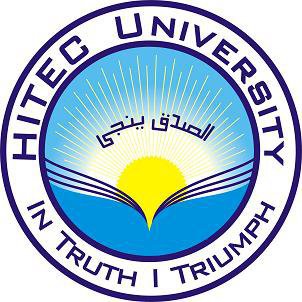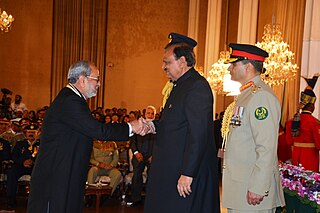
Educational Testing Service (ETS), founded in 1947, is the world's largest private educational testing and assessment organization. It is headquartered in Lawrence Township, New Jersey, but has a Princeton address.
A cram school is a specialized school that trains its students to achieve particular goals, most commonly to pass the entrance examinations of high schools or universities. The English name is derived from the slang term cramming, meaning to study a large amount of material in a short period of time. The word "crammer" may be used to refer to the school or to an individual teacher who assists a student in cramming.

Panjab University (PU) is an Indian collegiate public state university located in Chandigarh. Funded through both State and Union governments, it is considered a state university. It traces its origins to the University of the Punjab in Lahore, which was founded in 1882. After the partition of India, the university was established on 1 October 1947, and called East Punjab University. Initially housed primarily at a cantonment in Solan, it later relocated to a newly built campus in Chandigarh, and was renamed Panjab University. It is accredited by NAAC at five star level, with the highest NAAC A++ accreditation grade.
An examination board is an organization that sets examinations, is responsible for marking them, and distributes the results. Some are run by governmental entities; some are run as not-for-profit organizations.
The Hong Kong Certificate of Education Examination was a standardised examination between 1974 and 2011 after most local students' five-year secondary education, conducted by the Hong Kong Examinations and Assessment Authority (HKEAA), awarding the Hong Kong Certificate of Education secondary school leaving qualification. The examination has been discontinued in 2012 and its roles are now replaced by the Hong Kong Diploma of Secondary Education as part of educational reforms in Hong Kong. It was considered as the equivalent of the GCSE in the United Kingdom.
University admission or college admission is the process through which students enter tertiary education at universities and colleges. Systems vary widely from country to country, and sometimes from institution to institution.

The University of the Punjab, also referred to as Punjab University, is a public research university located in Lahore, Punjab, Pakistan. It is the oldest and largest public sector university in Pakistan.

The A-level is a subject-based qualification conferred as part of the General Certificate of Education, as well as a school leaving qualification offered by the educational bodies in the United Kingdom and the educational authorities of British Crown dependencies to students completing secondary or pre-university education. They were introduced in England and Wales in 1951 to replace the Higher School Certificate. The A-level permits students to have potential access to a chosen university they applied to with UCAS points. They could be accepted into it should they meet the requirements of the university.
Bored of Studies is an Australian website targeted at students in New South Wales and Victoria. It is prominent among students for its Student Assessment Modeller that calculates approximate Australian Tertiary Admission Rank or Equivalent National Tertiary Entrance Rank results, and for hosting study notes for the New South Wales Higher School Certificate courses. An extensive student community has evolved around its forum, which is frequented by school students, teachers and a growing number of university students. The site's name is a parody of the NSW Board of Studies, the former governing organisation for the Higher School Certificate (HSC).

The Common Law Admission Test (CLAT) is a centralized national-level entrance test for admissions to the 25 out of 27 National Law Universities (NLU) except NLU Delhi and NLU Meghalaya. CLAT was first introduced in 2008 as a centralized entrance examination for admission to the National Law Schools/Universities in India.
The General Certificate of Education (GCE) Advanced Level, or A level, is a main school leaving qualification in England, Wales, Northern Ireland, the Channel Islands and the Isle of Man. It is available as an alternative qualification in other countries.

Test preparation or exam preparation is an educational course, tutoring service, educational material, or a learning tool designed to increase students' performance on standardized tests. Examples of these tests include entrance examinations used for admissions to institutions of higher education, such as college, business school, law school, medical school, BMAT, UKCAT and GAMSAT and graduate school and qualifying examinations for admission to gifted education programs.
The education system in Lahore is formulated along specific modern, religious, cultural, social, psychological, commerce and scientific injunctions. Lahore is Pakistan’s largest producer of professionals in the fields of science, technology, IT, engineering, medicine, nuclear sciences, pharmacology, telecommunication, biotechnology and microelectronics. Most of the reputable universities are public, but in recent years there has also been an upsurge in the number of private universities. The current literacy rate of Lahore is 64%. The standard national system of education is mainly inspired from the British system. The system also aims to imbibe a secular outlook among the students with the awareness of the rich cultural heritage of Pakistan. Lahore has a wide range of schools, colleges and universities that caters to diverse streams.

HITEC University is a private university located in Taxila Cantonment, Punjab, Pakistan.
Medical & Dental College Admission Test (MDCAT) is a paper based test conducted in Pakistan and internationally each year for those who want to pursue undergraduate medical and dental education in Pakistan. It is a pre-requisite for admission in all medical and dental colleges in Pakistan.
Law Graduate Assessment Test (GAT) is a law graduation test for Eligibility to seek Enrollment as an Advocate in Bar Council for law graduates (LLB) in Pakistan. The test is administered by the Education Testing Council(ETC). The Law GAT test is administered by the Higher Education Commission HEC.

Syed Muhammed Junaid Zaidi ; known as S. M. Junaid Zaidi is a Pakistani scientist, entrepreneur and educator. He is the founding rector of the COMSATS University Islamabad.

Punjab University Law College (PULC) is a Public Sector Law College of University of the Punjab, Canal Road (Quaid e Azam) Campus, Lahore. It is the oldest law institute in Pakistan which was established in 1868 (14 years before Punjab University itself). It was the first institute offering legal education to be established in a Muslim majority area of the Subcontinent. Since then, it has produced some of the most prominent lawyers, activists, statesmen, judges, bureaucrats and politicians. Today, the institute is known for its rich history, high quality education and renowned Alumni.










